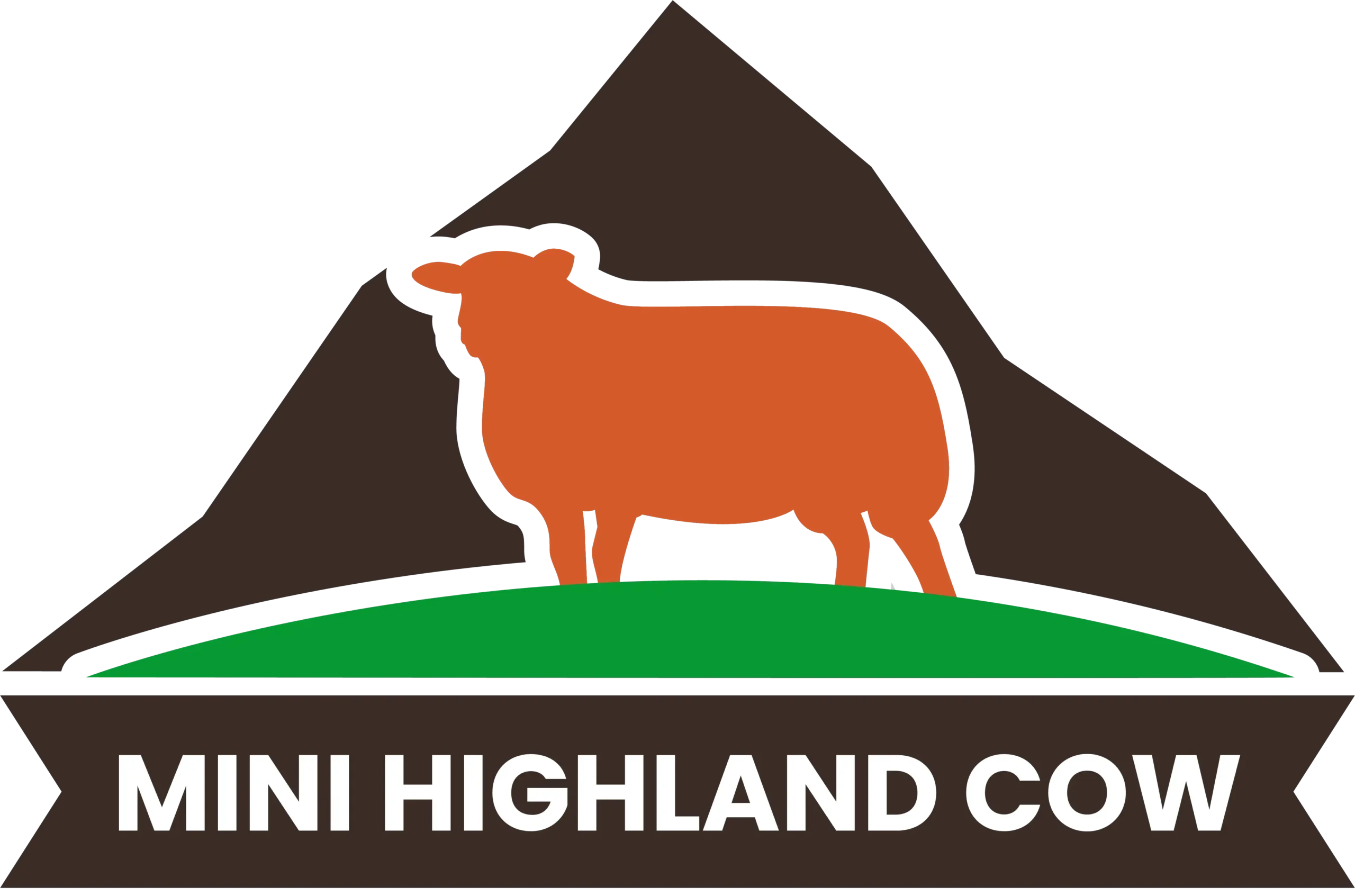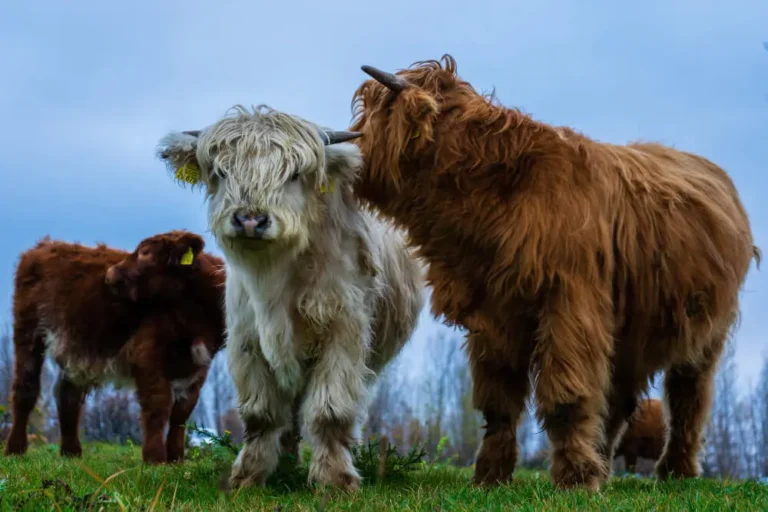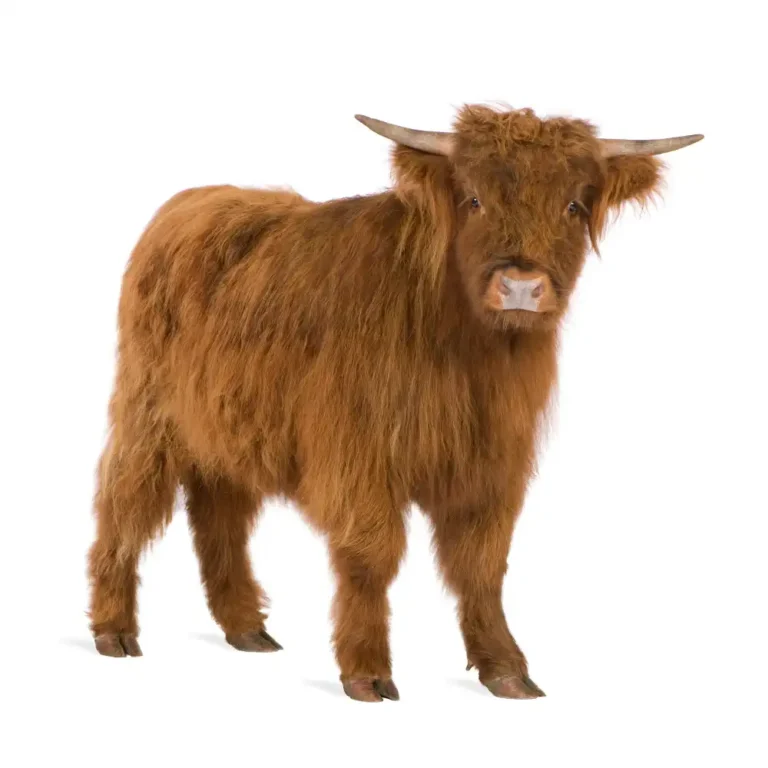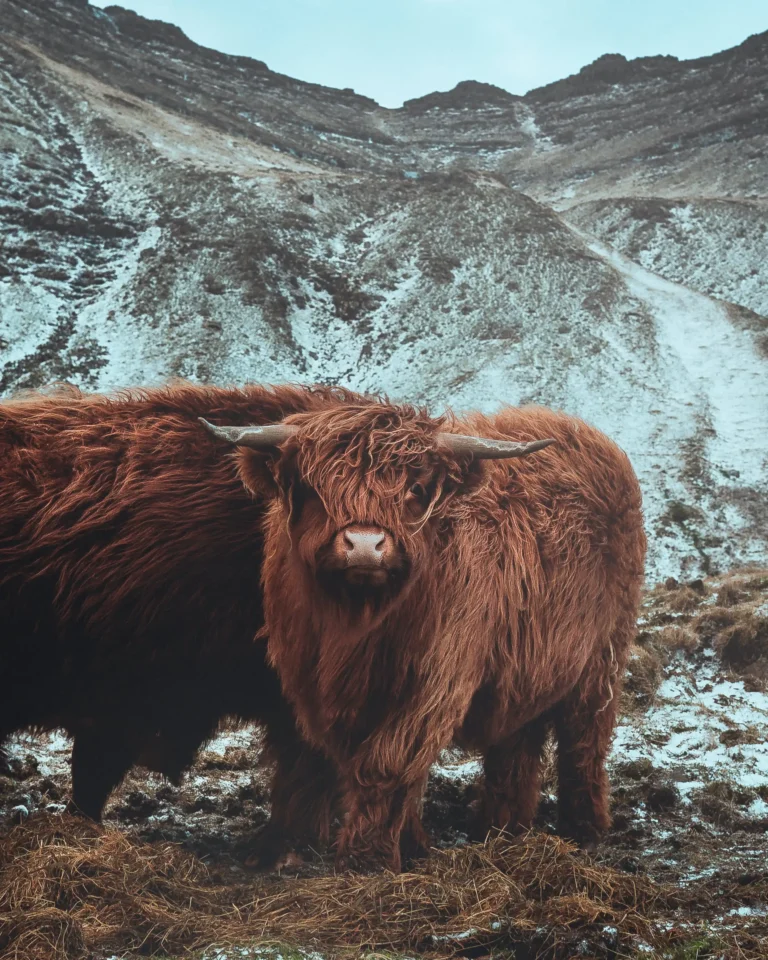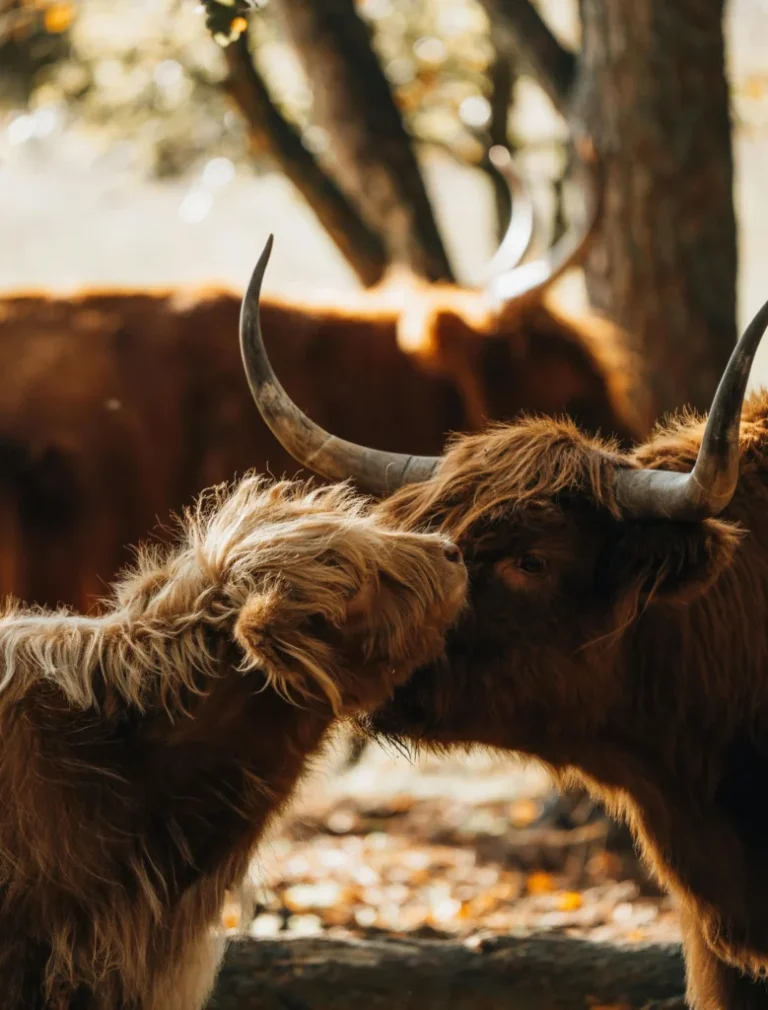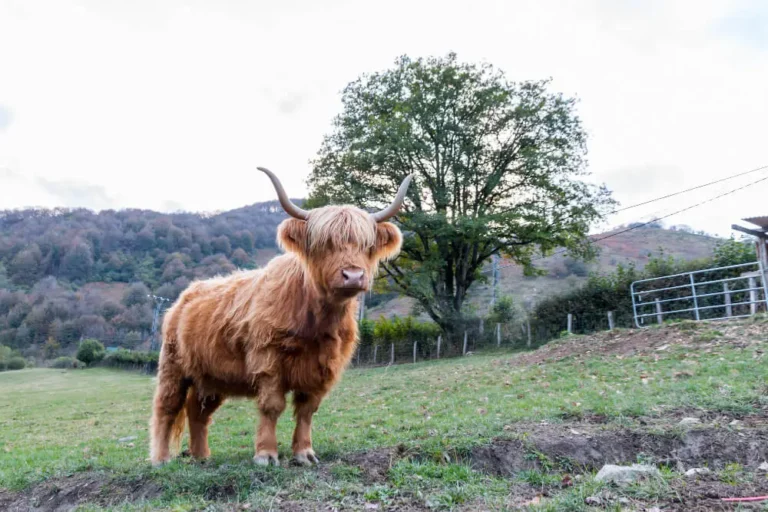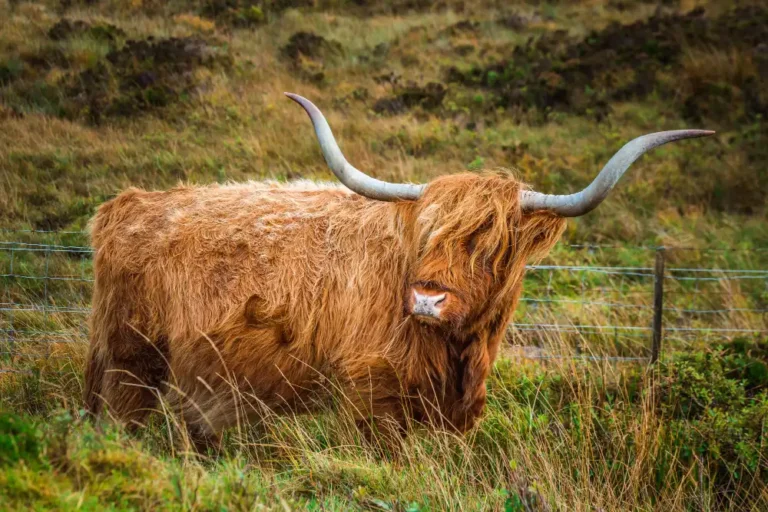Nutritional Needs and Diet of Mini Highland Cows
Mini Highland cows, a charming and petite variant of the regular Highland cattle, have captivated the hearts of small farm owners and breeders alike. These miniature breeds, known for their hardiness and unique appearance, are not just smaller versions of the regular highland cow but a breed in their own right, including the miniature belted Galloway and Dexter cattle.
They require a specific diet to maintain their health and well-being. Understanding their nutritional needs is critical to maintaining their health and ensuring they thrive in various climates. Here’s an in-depth look at their nutritional needs and diet:.
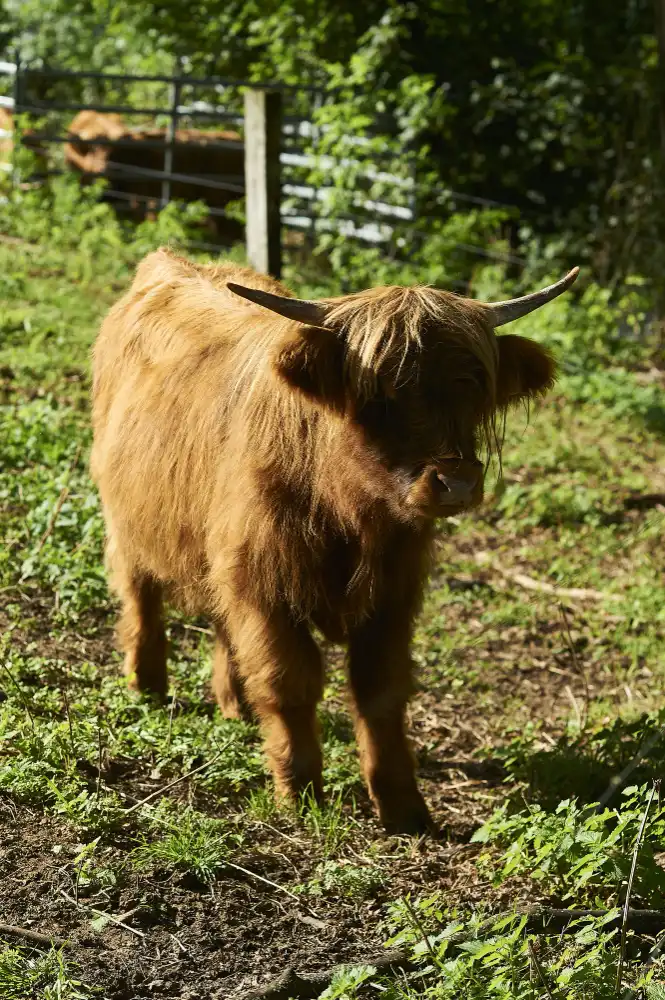
Understanding Mini Highland Cows
Before diving into their diet, it’s essential to understand these unique animals. Mini Highland Cows are a scaled-down version of Highland cattle, bred specifically for their smaller size. Despite their reduced stature, they share the same robust health and adaptability as their larger counterparts. They typically stand around 48 inches tall when fully grown, significantly smaller than full-size breeds.
Despite their small stature, they retain the hardy nature and shaggy coat of their larger counterparts, making them suitable for colder climates like the Scottish Highlands. They retain the rugged, long-haired appearance typical of Highland cattle and are well-suited for various climates, particularly in regions resembling their native Highland of Scotland.
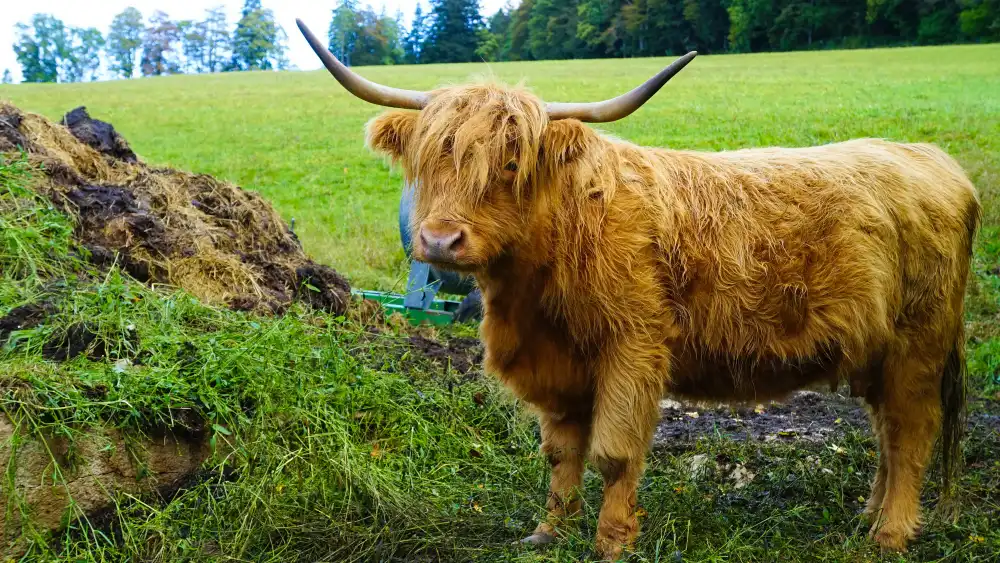
The Diet of Miniature Cow Breeds
Mini highland cows, like other cattle breeds, primarily graze on grass. Their diet is predominantly composed of pasture, and they are well-adapted to graze on the regrowth of grasses. The advantage of miniature breeds is their smaller size, meaning they require less feed than full-sized dairy cows or beef cattle. This makes them ideal for smaller farms or those with limited pasture space.
Specific Nutritional Needs
While mini highland cows may eat less due to their smaller frame size, their nutritional needs must still be met. Their diet should include:
Ensuring their diet includes adequate roughage to maintain proper digestive health is essential. Supplementing their grass diet with hay, especially during the winter when grass is scarce, is necessary.
Special Dietary Considerations for Different Life Stages
In the life cycle of Mini Highland Cows, each stage demands unique dietary considerations to ensure optimal health and growth. For calves, a diet rich in colostrum initially, followed by high-quality milk or milk replacers, is crucial for building immunity and supporting early development.
Gradually introducing forage and grains is vital for proper rumen development as they transition to solid foods. Adult cows require a balanced diet of quality forage, grains, and minerals to maintain their health, particularly during the breeding phase when nutritional needs escalate.
Pregnant and nursing cows require additional nutrients, particularly protein and calcium, to support fetal growth and milk production. Adjusting feed compositions and quantities based on age, weight, and health status is essential in preventing nutritional deficiencies and promoting long-term well-being in these distinct stages of a Mini Highland Cow’s life.
Seasonal Dietary Adjustments
During the lush growth of summer, these cows thrive on abundant fresh grass, which provides most of their nutritional requirements. However, supplementary feeding becomes necessary as winter approaches and grass quality diminishes. This typically includes hay, which compensates for the lower availability and nutritional value of natural forage and may also involve additional grain or concentrates to provide the extra energy needed to cope with colder temperatures.
It’s also vital to ensure access to clean water and mineral supplements year-round, adapting to the changing needs brought about by temperature fluctuations and the quality of available feed. These seasonal adjustments help sustain the cows’ health, ensure their dietary needs are met, and prepare them for the varying conditions of their environment.
Grazing and Pasture Management
Efficient pasture management is crucial for mini cattle breeds. Due to their smaller size and lower weight per cow, they are less likely to cause significant damage to the pasture. This makes rotational grazing a feasible and beneficial practice, allowing time for grass regrowth and maintaining pasture health. Fencing is essential to manage grazing areas and to protect these smaller animals from potential predators.
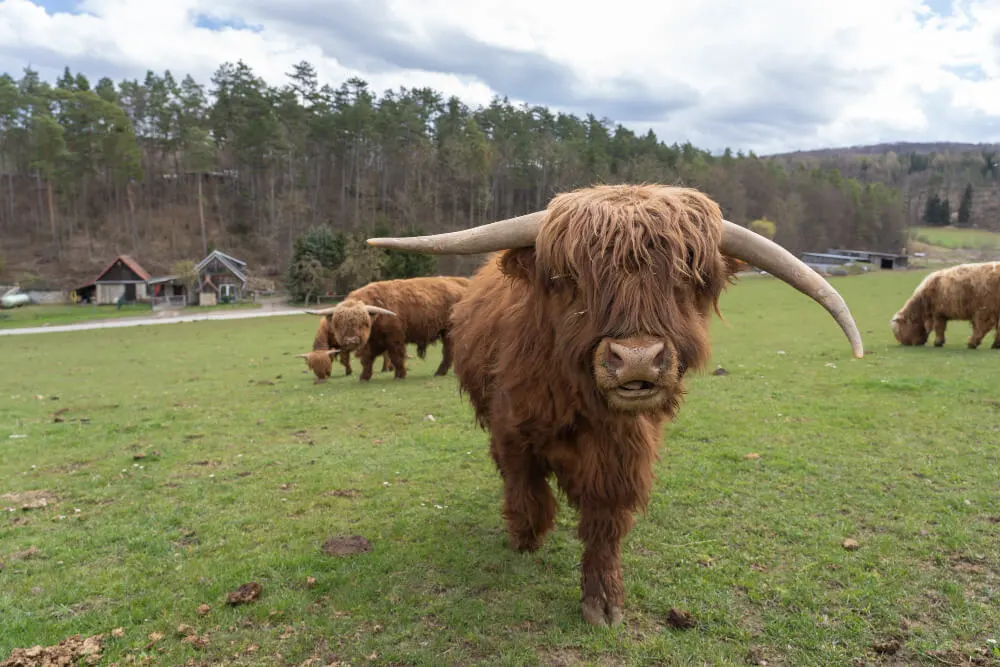
Breeding and Reproductive Health
Responsible breeding practices are essential for maintaining the health of mini highland cows. These smaller cows require ample space to move and graze. Particular attention should be given to the heifer and dam, especially during pregnancy. The petite size of these breeds often results in easy calving, but it’s still crucial to monitor their health and consult with a veterinary professional regularly.
Common Dietary Challenges and Health Issues
Common dietary challenges and health issues in Mini Highland Cows stem from nutritional imbalances or deficiencies. Overfeeding can lead to obesity, increasing the risk of joint issues and metabolic disorders, while underfeeding can result in malnutrition and weakened immune systems.
A lack of essential nutrients like minerals and vitamins can cause various health problems, including poor coat condition, reproductive issues, and stunted growth. Ensuring a balanced diet is crucial, as is monitoring for signs of digestive disturbances, which may indicate poor feed quality or inappropriate diet composition.
Additionally, Mini Highland Cows, with their thick coats, might be less efficient at regulating body temperature in warmer climates, necessitating adjustments in their diet to compensate for increased metabolic demands. Regular health check-ups and a keen eye on their daily feeding habits are essential to promptly identify and address these challenges, ensuring the well-being of these animals.
Best Practices in Feeding and Nutrition Management
Best feeding and nutrition management practices for Mini Highland Cows involve a multifaceted approach prioritizing quality, consistency, and adaptability. It’s crucial to provide a balanced diet comprising high-quality forage, grains, and necessary supplements, tailored to the specific needs of different life stages and health conditions.
Monitoring the cows’ body condition and weight is critical to effectively adjusting feed quantities and compositions. A consistent feeding routine helps maintain digestive health and reduces animal stress. Ensuring clean, abundant water and mineral access is also essential for overall health.
It’s important to stay informed about the latest nutritional research and to work closely with a veterinarian or a bovine nutritionist to address any health concerns and to fine-tune the diet as needed. By adhering to these best practices, farmers and caregivers can promote optimal health, growth, and productivity in their Mini Highland Cows.
Successful Diets for Mini Highland Cows
Successful diets for Mini Highland Cows hinge on a balanced combination of forage, grains, and essential supplements, tailored to their specific environmental and physiological needs. In their native Scottish Highlands, these cows have adapted to thrive on the sparse, rough vegetation.
Still, in managed settings, their diet is often supplemented with quality hay, particularly in winter, and a moderate amount of grains to ensure adequate energy intake. Essential minerals and vitamins, either included in feeds or provided as supplements, are crucial in preventing deficiencies and supporting overall health.
Attention is also paid to the protein content, especially for growing calves and nursing mothers, to promote healthy development and milk production. A successful diet for Mini Highland Cows balances these nutritional components, ensuring they are suitable for the cow’s age, weight, activity level, and reproductive status while also being mindful of the seasonal changes in their dietary needs. This approach maintains their health and vigor and preserves this hardy breed’s unique characteristics and resilience.
Avoiding Dietary Issues
Avoiding dietary issues in Mini Highland Cows involves a proactive and informed approach to nutrition and health management. Key to this is providing a balanced diet that meets their specific nutritional requirements at different life stages and seasons, which includes an appropriate mix of forage, grains, and supplements.
Regular monitoring of their health and body condition is crucial, as it allows for early detection and correction of potential dietary imbalances or deficiencies. Environmental factors, such as changes in forage availability and quality across seasons, should be anticipated and compensated for with appropriate dietary adjustments. Access to clean, fresh water and essential minerals must be ensured year-round.
Regular Health Checkups
Regular health checkups are vital for maintaining the well-being of Mini Highland Cows, involving periodic examinations by a veterinarian to assess their overall health, growth, and nutritional status. These checkups provide an opportunity to detect and address potential health issues early, such as parasitic infections, dental problems, or nutritional deficiencies.
They also offer a chance to review and adjust dietary plans, vaccination schedules, and other preventive care measures. By ensuring consistent health monitoring, farmers and caretakers can maintain the health of their herd, prevent the spread of diseases, and enhance the longevity and quality of life of these distinctive animals.
Conclusion
The nutritional needs and diet of Mini Highland Cows are crucial for their health and well-being. These smaller versions of miniature cattle require a specific diet that includes a balance of forage, proteins, carbohydrates, fats, vitamins, and minerals tailored to their size, life stage, and environmental conditions.
Seasonal dietary adjustments, efficient pasture management, and regular health checkups are vital to addressing their unique nutritional requirements. By providing a balanced diet, monitoring their health, and making adjustments, caretakers can ensure these charming and hardy miniature breeds thrive and maintain their distinct characteristics in various farm settings.
